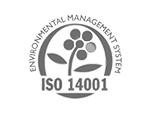Environmentally friendly transport for bulk materials involves using fuel-efficient vehicles, optimizing routes, implementing intermodal solutions, and reducing empty miles. It focuses on minimizing carbon emissions while maintaining efficiency in moving powders, granules, and other bulk products. Modern approaches include using renewable fuels, electric or hybrid vehicles, and advanced logistics systems that reduce overall environmental impact without compromising service quality or reliability.
What does environmentally friendly transport actually involve for bulk materials?
Environmentally friendly transport for bulk materials involves a comprehensive approach that goes beyond just using cleaner vehicles. It includes optimized route planning to reduce unnecessary mileage, intermodal transport solutions that combine road, rail and sea options, and improved loading efficiency to maximize each journey’s productivity.
For bulk materials like powders and granules, sustainable transport requires specialized equipment that prevents material loss or contamination while maintaining environmental standards. This means using sealed systems that prevent dust emissions during loading and unloading processes, which is important for both environmental protection and material conservation.
Sustainable bulk transport also involves training drivers in eco-driving techniques. These techniques include maintaining steady speeds, avoiding unnecessary idling, and proper acceleration and braking patterns that reduce fuel consumption. When these practices are combined with modern fleet management systems, they create a comprehensive approach to reducing environmental impact.
Another important aspect is flexible transport planning that adapts to changing conditions. This flexibility allows for consolidating loads when possible and finding backhaul opportunities to reduce empty miles—one of the biggest sources of inefficiency in transport operations.
How do modern fleet technologies reduce environmental impact in bulk transport?
Modern fleet technologies reduce environmental impact in bulk transport through advanced engine designs, aerodynamic improvements, and intelligent management systems. Today’s trucks feature Euro 6 engines that significantly reduce harmful emissions compared to older models, while telematics systems monitor and optimize driving patterns in real time.
Trucks designed specifically for bulk transport now incorporate improved aerodynamics with features like roof deflectors, side skirts, and optimized tank shapes that reduce air resistance. These aerodynamic improvements can reduce fuel consumption by 5-10% at highway speeds, directly translating to lower emissions.
Fleet management software provides real-time data on vehicle performance, enabling transport companies to identify and address inefficiencies quickly. These systems monitor factors like idling time, speed variations, and route adherence—all of which affect fuel consumption and emissions.
For bulk material transport, specialized equipment technologies also make a difference. Modern pneumatic systems for loading and unloading require less energy than older systems, while improved sealing technologies prevent material loss during transport. This not only reduces waste but also eliminates the need for additional transport to replace lost materials.
Intermodal transport technologies allow for seamless transitions between road, rail, and sea transport, making it practical to choose the most environmentally efficient combination for each journey. This flexibility helps reduce the overall carbon footprint of bulk material logistics.
What are the business benefits of choosing eco-friendly bulk transport options?
Choosing eco-friendly bulk transport options delivers clear business benefits including reduced fuel costs, compliance with environmental regulations, improved brand reputation, and potential access to environmentally conscious markets. Companies can see direct financial savings through more efficient operations while also building longer-term competitive advantages.
The most immediate benefit is cost reduction through lower fuel consumption. Energy-efficient transport methods typically use 10-20% less fuel compared to conventional approaches, creating significant savings for operations involving heavy loads and long distances—common in bulk material transport.
Companies that invest in sustainable transport solutions position themselves ahead of increasingly strict environmental regulations. This proactive approach helps avoid compliance costs and potential penalties while reducing the risk of operational disruptions from regulatory changes.
Many customers now consider environmental factors in their purchasing decisions. Businesses can strengthen relationships with environmentally conscious clients by demonstrating their commitment to sustainable logistics. This is particularly valuable when working with companies that have their own environmental targets to meet.
Sustainable transport also offers operational resilience through diversified options like intermodal solutions. These flexible approaches help businesses adapt to changing conditions, whether they’re fuel price fluctuations, road congestion, or unexpected disruptions.
Cost-effective transportation that combines efficiency with environmental benefits creates a competitive advantage, especially when bidding for contracts with companies that have strong sustainability commitments. This advantage becomes more valuable as environmental considerations gain importance in business decisions.
How can companies verify if their bulk material transport is truly environmentally friendly?
Companies can verify if their bulk material transport is truly environmentally friendly by measuring key performance indicators, obtaining relevant certifications, conducting regular fleet audits, and comparing performance against industry standards. This verification process creates transparency and enables continuous improvement in environmental performance.
The foundation of verification is measuring emissions and efficiency metrics. Companies should track fuel consumption per ton-kilometer, carbon emissions, and other relevant environmental indicators. These measurements provide objective data to assess environmental performance and identify improvement areas.
Industry certifications and standards serve as external validation of environmental practices. Standards like ISO 14001 for environmental management systems or specific transport-related certifications provide frameworks for implementing and verifying sustainable practices.
Regular fleet audits help identify opportunities for improvement in vehicle maintenance, driving practices, and route optimization. These audits should evaluate both technical aspects (vehicle condition, emission control systems) and operational factors (loading efficiency, route planning).
Comparing performance against industry benchmarks helps companies understand where they stand relative to best practices. Industry associations and sustainability initiatives often publish benchmark data that companies can use as reference points.
Transparent reporting on environmental performance demonstrates commitment to sustainability and builds trust with stakeholders. Companies should consider publishing regular updates on their environmental initiatives and achievements in transport operations.
At Powder-Trans, we’ve been transporting bulk materials for over 50 years while continuously adapting our approaches to meet environmental challenges. Our expertise in handling powders and granular materials combined with our commitment to sustainable transport makes us a reliable partner for companies looking to reduce their environmental footprint without compromising on quality or reliability.






